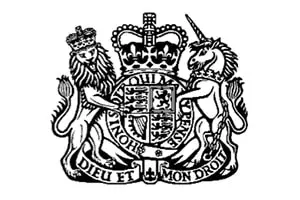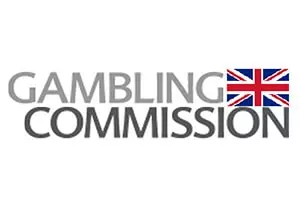
The United Kingdom has some of the most straightforward laws governing the gambling and betting industries in the world. At the same time, it provides some of the most stringent laws, restrictions and customer protections in the world. Unlike many other places around the world where gambling is highly restricted on paper but runs wild outside the law, the country allows casino games and betting – it simply regulates them very actively.
In the following sections, we will look at the legislation concerning casinos in the United Kingdom, an industry that is now producing over £3.2 billion in gross gaming yield. There are more than 150 casinos in the UK, while the number of online licenses is quickly growing and now exceeds 2,000.
Gambling in the UK: Historical Overview
Gambling first became subject to state regulation in the 1400s when authorities in the country restricted betting on horse races and sports to the nobility, while the poor could only play dice games. The Unlawful Games Act 1541 outlawed practically all forms of gambling but it was never really enforced – just a few years later, lotteries were officially launched through a Royal Charter from Queen Elizabeth I. The first gaming houses and clubs emerged in the late 1700s and since then, they operated under different regulatory regimes.
Different laws were passed, amended, and repelled over the following decades and centuries and although casinos were outlawed temporarily, they continued to gain popularity in the underground. In the 1960s, the UK finally legalized casino operations and today, gaming establishments can be accessed by anyone over the age of 18. The main regulatory authority is the Gambling Commission, which oversees all forms of gambling (with the exception of spread betting) on behalf of the government’s Department for Culture, Media and Sport (DCMS).

The Gaming Act of 1968

Gambling Commission
The Gaming Act of 1968
The Betting and Gaming Act 1960 legalized private casinos for the first time, although it was very restrictive – these casinos were licensed by the Gaming Board of Great Britain and had to be members-only clubs where up to 10 gaming machines could be installed. Casino Club Port Talbot in Wales is believed to be the first legal casino in the UK.
Later, the law was liberalized with the passing of the Gaming Act 1968. It allowed the operation of larger casino establishments with more gaming machines and easier access by patrons. Of course, the Act banned casino gambling for persons under the age of 18.
Gambling Commission
The Gambling Commission (UKGC) was set up under the Gambling Act 2005 and took authority over all commercial gambling in the UK in 2007. This is an independent agency and an executive non-departmental public body sponsored by the Department for Culture, Media and Sport (DCMS). Its headquarters is located in Birmingham and it has more than 300 employees.
Under Section 20 of the Gambling Act 2005, the Commission replaced the Gaming Board for Great Britain and it has jurisdiction over the arcades, betting, bingo, casinos, slot machines, and lotteries. It regulates the remote gambling sector, which includes online bookmakers, bingo and casino websites. On 1 October 2013, the National Lottery Commission was abolished and its responsibilities were transferred to the Gambling Commission, including the monitoring and regulation of the National Lottery. However, the UKGC has no authority over spread betting – it is regulated by the Financial Conduct Authority.
The main responsibilities of the Commission include licensing – it issues licenses to operators, but it also has the right to revoke them and to levy fines for violations of the relevant legislation. The agency has investigative powers and can prosecute illegal gambling operations. Additionally, it advises the Government and local authorities on various gambling-related issues. The Commission may make recommendations for amendments to the current legislative framework. It is also responsible for the monitoring and supervision of all gambling operations and can make different inspections and inquiries.
Gambling Act 2005
The main piece of legislation that regulates both land-based and online casinos in the UK is the Gambling Act, passed in 2005 by the Parliament of the United Kingdom. It controls all forms of gambling in England, Scotland, and Wales. The Act established the Gambling Commission and transferred licensing the magistrates’ courts to local authorities and to Scottish licensing boards.
Considered to be the most important overhaul of the gambling industry in the country since the 1960s, the sets out three main objectives. First, it aims to guarantee that all gambling is conducted in a fair and open way. Second, it prevents gambling to be associated with any form of criminal activity. And last, but not least, it focuses on minimizing the negative impact of gambling on society – it aims at protecting children and other vulnerable groups from problem gambling.
The law does not place any restrictions on casino patrons – they are allowed to play casino games without a license and they do not need to pay any taxes on the profits generated from gambling activities. Of course, the minimum age requirements have remained. Online casino operators are required to conduct age and identity verification procedures (these were updated in 2019) for all newly registered customers.
The Gambling Act 2005 has an entirely different impact on operators, however. First of all, we should note that it does not differentiate between land-based and remote operations – casinos are defined as “an arrangement whereby people are given an opportunity to participate in one or more casino games“. And casino games refer to “games of chance“, which is different from equal chance gaming. All casino operators are required to obtain a license from the Gambling Commission and their profits are subject to taxation, depending on the type of game they offer – games such as roulette, poker, and blackjack may come with a tax, ranging from 15% to 50%. Land-based slots, however, are taxed at a rate from 5% to 25%.

Casino Licenses

Casino Games

Gaming Machines

Protection of Children and Young Persons
Casino Licenses
The Gambling Commission issues several types of licenses for the casino industry – operating licenses (including gambling software operating license), personal licenses for croupiers, as well as premises licenses (these are usually issued by local authorities responsible for a certain area). Operating licenses are, of course, those that matter the most when it comes to the casino sector.
Casinos may be classified as small, large or regional casinos. They all need to meet certain licensing requirements – when considering whether to grant an operating license, the Gambling Commission takes into account a range of factors, including the “applicant’s integrity, competence, and finances (including source of finance)” according to the Guidance to licensing authorities.
Casino Games
Casino games are a particular group of games of chance that can be offered only in casino premises and not equal chance games. According to the Guidance to licensing authorities issued under the Gambling Act 2005, equal chance gaming is “gaming which does not involve playing or staking against a bank, and where the chances are equally favourable to all participants”.
Currently, no casino games are banned in the UK. The Commission has published the rules of the most popular casino games. They include roulette, three card poker, blackjack, punto banco, and dice.
Gaming Machines
The other types of games that can be played in casinos are gaming machines. They can be Category A, B, C, or D, and according to Section 236 of the Gambling Act 2005, Category B gaming machines are divided by subcategories, as well. The different categories are defined by the maximum stake and maximum price the game can deliver. These, however, have been updated since 2005. In addition, each category is allowed in different types of premises, with Category A and B1 machines available “only in the highly regulated environment of casinos“.
Based on the classification of each particular casino, it may host a different number of games. Small casinos are allowed to offer up to 80 machines of Category B, C or D, while large ones can host a maximum of 150 machines of Category B, C or D. Regional casinos are allowed to have up to 1,250 machines of Category A, B, C or D.
Protection of Children and Young Persons
Since one of the main objectives of the Gambling Act 2005 is to protect children from gambling activities, the Commission has taken a range of measures to prevent underage gambling. They are described in the Licence Conditions and Codes of Practice, which are documents regularly issued and updated by the UKGC.
According to them, casino operators must block access to their premises for individuals under the age of 18. To ensure this rule is enforced, operators need to have a door supervisor at every entrance to a casino. When it comes to online casinos, age verification procedures are mandatory – operators must require new account holders to provide copies of their government-issued IDs, where the name and age are clearly visible, as well as proof of address such as copies of recent utility bills.
Casino games, with no exceptions, can be played only by persons aged 18 and over. When it comes to gaming machines, however, the law sets no minimum age for players of Category D machines. Of course, all other games – all category A, B and C machines, including category B3A gaming machines offering lottery-style games, are allowed for persons aged 18 and over.
Gambling (Licensing and Advertising) Act 2014
The Gambling Act 2005 has been amended multiple times over the past 15 years. Probably the most important updates to the legislation were made with the Gambling (Licensing & Advertising) Act 2014. It contributed several major amendments to the Act, most notably a requirement that all off-shore gambling companies apply for a license from the Gambling Commission.
Additionally, foreign operators from the white-listed gambling jurisdictions were required to submit to a 15% point of consumption (POC) tax on gross profits.
Whitelisted Gambling Jurisdictions
Until 2014, when amendments to the Gambling Act were made, operators licensed in certain countries could advertise their services and provide gambling facilities in the UK without an additional license from the UKGC. Casino and betting firms from countries outside the UK and Gibraltar were not allowed to advertise in the UK unless they were from these so-called white-listed gambling jurisdictions – EEA countries, Alderney, Antigua and Barbuda, Gibraltar, Isle of Man, and Tasmania.
However, the Gambling (Licensing and Advertising) Act 2014 brought changes to the licensing regime for operators. Now, all firms that wish to advertise and provide gambling services to customers based in the UK must obtain a license from the UK. They must apply for either new authorization or for a continuation of their license.
Advertising Rules for Gambling Ads
One of the most important aspects of gambling regulation in the UK concerns the advertising and marketing of such products. The current rules are underpinned by the Gambling Act 2005 but are defined in detail in the UK Advertising Codes issued by the Committees of Advertising Practice (CAP). They are administered by the Advertising Standards Authority (ASA), a self-regulatory, non-government organization that acts as the main advertising regulator in the UK.

Advertising Standards Authority (ASA)

Advertising Rules
Advertising Standards Authority (ASA)
ASA was established in 1962 by the advertising industry with the purpose of adjudicating on complaints based on the recently published British Code of Advertising Practice (the CAP Code). Now, the Authority (although it is not a public authority in the usual sense) is responsible for regulating “the content of advertisements, sales promotions and direct marketing in the UK“.
It is a self-regulatory body, which means that its operations are funded not by the government but by a voluntary levy on the industry. Although it cannot enforce legislation, it can force firms to remove their ads if they break the CAP code.
Advertising Rules
The gambling and betting advertising rules were set up to ensure that ads are socially responsible. The rules apply to both direct advertising by gambling operators and affiliate marketing. All rules are listed in detail on ASA’s official website.
For instance, gambling ads cannot target children and young persons under 18. They cannot promise guaranteed winnings or imply that gambling can solve financial or personal problems. They should, however, promote responsible gambling and clearly explain that any form of gambling is associated with risk.
Remote Gambling
The Gambling Commission controls and regulates not only land-based casinos and gambling premises but also the entire remote gambling sector. This includes all online casinos – both UK-based and offshore brands, that wish to offer their services to patrons based in England, Wales or Scotland. According to the official website of the UKGC,
Gambling websites trading with, or advertising to, consumers in Britain must have a Gambling Commission licence.
The remote casino operating license allows operators “to offer casino games to customers via a website, mobile phone, TV or other online service. This includes poker, roulette, blackjack and other casino games, as well as online slot games”. In addition, all online casinos must provide software from suppliers that have a licence from the Gambling Commission. The remote gambling software license is mandatory for all firms, which manufacture, supply, adapt or install gaming software to the websites of UKGC licensees.

GAMSTOP
![]()
Ban on Gambling with Credit Cards
GAMSTOP
Overall, there are no separate laws for remote gambling – online casinos, in particular, must comply with the same rules and regulations set up for land-based establishments in the Gambling Act 2005. There are some exceptions, of course. Online casinos, for instance, must prevent underage gambling, display the RTP (return to player) percentages for all games, and promote fair and responsible gambling.
Facilitating self-exclusion is mandatory. All online casinos must take part in the multi-operator self-exclusion scheme GAMSTOP, in particular, the UKGC announced in January 2020. By 31 March all operators will have to participate. GAMSTOP is a free service for all residents of Great Britain and Northern Ireland and it allows them to register online and exclude themselves from all gambling sites in the UK for at least six months. The scheme is run by a not-for-profit organization called The National Online Self-Exclusion Scheme Limited.
Stake Limit on Fixed Odds Betting Terminals

One of the most popular types of gambling machines in the UK is a group of machines known as fixed odds betting terminals or FOBTs. The Gambling Act 2005 classifies FOBTs as
Category B2 gaming machines and they are a type of electronic slot machine where the outcome has fixed odds. The RTP is always displayed on the machine and it is usually between 90% to 94%. Popular FOBTs in the UK are the electronic versions of roulette, for instance.
Originally, the Gambling Act 2005 determined that the minimum amount that could be wagered per spin was £1, while the maximum stake was £100. In May 2018, however, the Department for Digital, Culture, Media and Sport (DCMS) announced that the maximum stake would be lowered to £2 per spin. The new regulations came into force on 1 April 2019 – the maximum single bet was changed to £2, while the maximum prize remained the same at £500.
The move came after increasing concerns about the addictive nature of such types of games. Similar to standard slot games or fruit machines available only in the highly regulated environment of casinos, FOBTs are offered in betting shops and tracks with pool betting, as well. Moreover, critics claimed that the maximum allowed stake per single game resulted in huge financial losses for gamblers.





 The Gaming Act of 1968
The Gaming Act of 1968 Gambling Commission
Gambling Commission Advertising Standards Authority (ASA)
Advertising Standards Authority (ASA) GAMSTOP
GAMSTOP